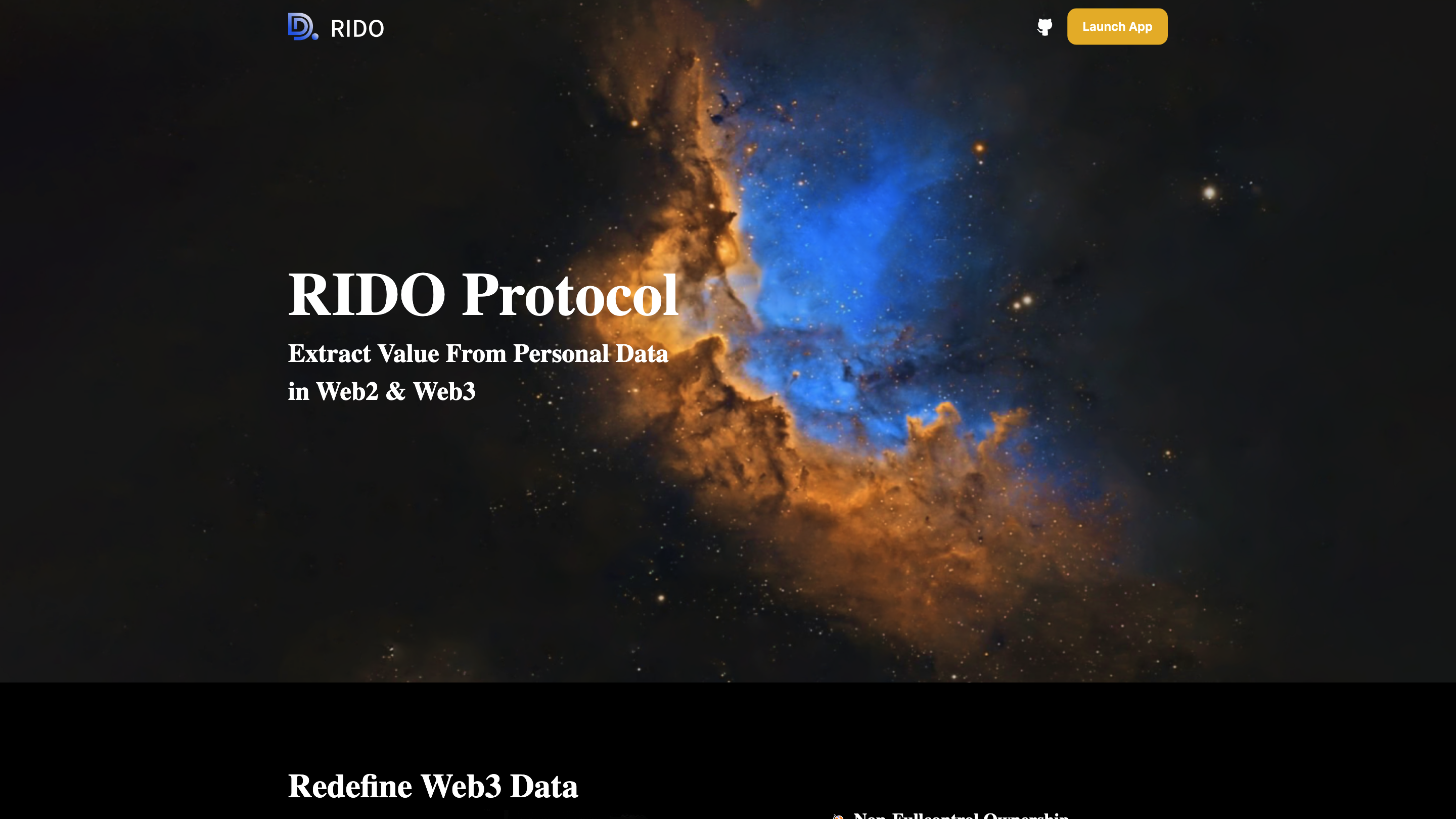RIDO Protocol
Open siteResearch & Data Analysis
Introduction
Help users extract value from personal data
RIDO Protocol Product Information
RIDO Protocol – Launch App
RIDO Protocol is a Web3 data ecosystem that extracts value from personal data across Web2 and Web3, redefining ownership, access, and monetization of information generated by users. It emphasizes user-controlled data with programmable data generation and access rules, enabling cross-application data sharing, data marketplaces, and AI-assisted experiences while prioritizing privacy and data rights.
Key Concepts
- Data Ownership & Access: Data owners control permissions; data modification follows a defined protocol.
- Programmable Data Generation: Users declare the structure and generation function for new data variables for use across apps.
- Programmable Access Control: Data owners define access rules (NFTs, tokens, custom logic, etc.) so anyone meeting conditions can read data.
- Data Migration (Web2 to Web3): BNB Attestation Service clarifies ownership and enhances access control during migration.
- Data Marketplace & DataFi: A two-way marketplace lets users list/offer data ownership and enables value flow via a data-finance protocol.
- Cross-Application Sharing: Low-friction data sharing across apps increases composability while keeping user control.
How It Works
- Data owners define data variables, structures, and generation logic for programmable data.
- Access control is encoded (NFTs/tokens/custom logic); eligible parties can read data.
- Data can be migrated from Web2 using the BNB Attestation Service with clear ownership signals.
- Data can be listed or traded on the Data Marketplace; value flows via DataFi mechanisms.
- AI-assisted features personalize interactions and analytics while respecting data rights.
Use Cases
- Personal data monetization with explicit ownership and control.
- Cross-app data sharing to improve interoperability and ecosystem richness.
- AI-driven recommendations and digital assistants tailored to user history and preferences.
- Creation of immersive, digital experiences (virtual environments) that leverage user data in a privacy-respecting way.
Safety & Governance Considerations
- Data ownership and consent are central; permissions must be verifiable and enforceable.
- Access rules can be complex; users should understand who can read their data and under what conditions.
- Compliance with applicable data privacy regulations remains essential as data is shared or monetized.
Core Features
- Programmable Data Variables: Define data structures and generation functions for reusable data assets.
- Programmable Access Control: Flexible, rule-based data access via NFTs, tokens, or custom logic.
- Data Migration Support: Seamless Web2-to-Web3 data transition with ownership clarity using BNB Attestation Service.
- Data Marketplace & DataFi: Two-way marketplace for data assets and monetization through data finance protocols.
- Cross-Application Data Sharing: Enables low-friction data sharing across diverse apps for richer ecosystems.
- AI-Driven Personalization: Decentralized recommendation systems, digital assistants, and virtual life experiences.
- Fully Decentralized DApp & Community: Governance and operation distributed across users and networks.
Terminology
- Data Owner: Individual who controls access and monetization of their data.
- DataFi: Protocol enabling the flow of data information and value.
- Attestation Service: Mechanism to verify data ownership during migration from Web2.
Note
RIDO envisions a user-centric data economy where data rights are protected, and value from data is created through trustworthy, programmable, and interoperable mechanisms across Web2 and Web3 environments.
